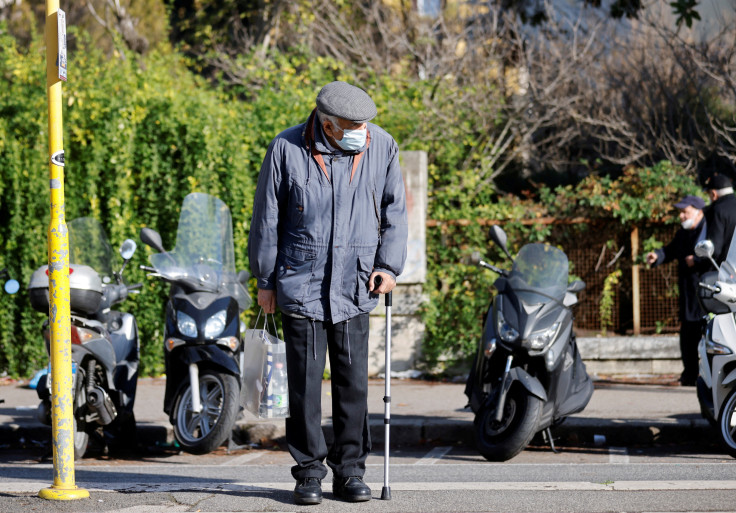Half of the population will have a mental health disorder at the age of 75
In a study analysing 150,000 people in 29 countries, researchers found that half of the world's population will have a mental health disorder by the age of 75.

Let's face it, getting older sucks. No one wants to grow old. After all, we gradually lose control of our precious bodies, we're left vulnerable to physical illnesses, we suffer tragic bereavements, and we're often forced into retirement when we struggle to move around as quickly as we used to.
But one of the absolute worst parts of getting older is the idea of losing control of our minds, what with dementia, Alzheimer's and the possibility of developing various mental health disorders.
Surely, most older people don't develop mental health problems though, right? The Mental Health Foundation states that only one in four older people experience depression.
However, according to a recent study conducted by the University of Greenland and Harvard Medical School, the chances of developing mental health disorders by old age may be higher – much, much higher – than initially believed.
Researchers from both campuses analysed data reported between 2001 and 2022, which spanned more than 150,000 adults from 29 countries around the world.
This international data was collected from the World Health Organisation's World Mental Health Survey initiative, which currently stands as the largest coordinated series of face-to-face interviews ever carried out for medical purposes.
Lead author of the study, Professor John McGrath, who teaches at the University of Greenland, respectively, states that the results demonstrate a high prevalence of mental health disorders, with one in two people developing at least one disorder by the age of 75.
One in two people – so half of the world's population will be mentally ill by the time they reach their retirement years. I think it's fair to say that these figures are beyond startling.
Professor McGrath commented on his findings, saying: "The most common were mood disorders such as major depression or anxiety".
"We also found the risk of certain mental disorders differed by sex," he continued.
To give context to Professor McGrath's previous statement, the three most common mental health disorders among elderly women were depression, specific phobias and post-traumatic stress disorder
Whilst the three most common mental health disorders for elderly men were alcohol abuse, depression and specific phobias.
The researchers also discovered that these types of mental health disorders were more likely to develop in childhood, with more prominent symptoms developing in adolescence or early adulthood.
"The peak age of first onset was at 15 years old, with a median age of onset of 19 for men and 20 for women," Professor McGrath said, commenting on this discovery.
Professor Ronald Kessler from Harvard Medical School commented: "Services need to be able to detect and treat common mental disorders promptly, and be optimised to suit patients in these critical parts of their lives."
"By understanding the age at which these disorders commonly arise, we can tailor public health interventions and allocate resources to ensure that appropriate and timely support is available to individuals at risk," the Harvard professor concluded.
By the end of their findings, the researchers came to a consensus that the outcomes provided valuable insights into elderly care, along with the frequency, and timing of the onsets of mental health disorders.
The results of the study were published in The Lancet Psychiatry, a peer-reviewed scientific journal.
© Copyright IBTimes 2025. All rights reserved.






















